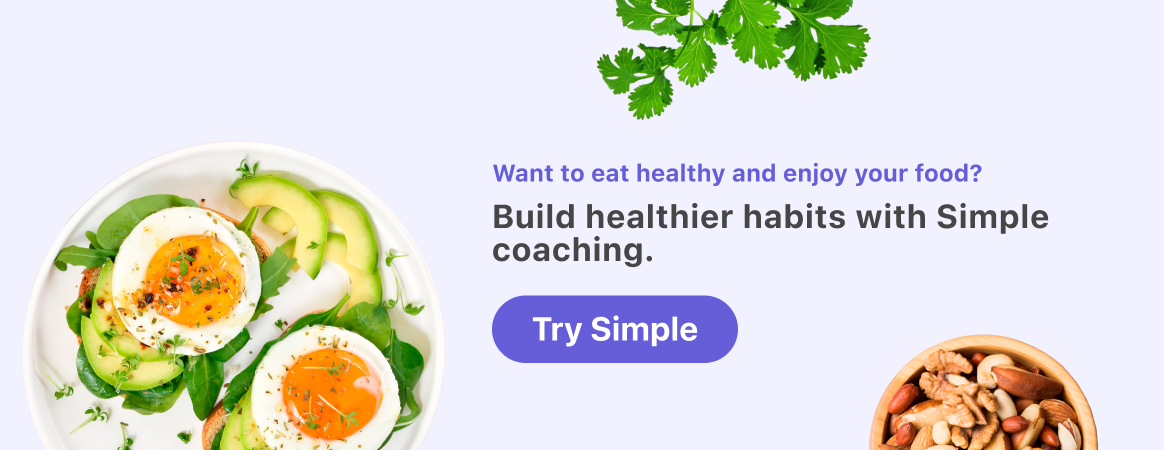Pros and cons of intermittent fasting

If you’ve been thinking about starting a new diet, maybe doing a little research on the best ways to drop a few pounds, chances are you’ve come across intermittent fasting.

And now, chances are you’re curious about the pros and cons of this potential method.
Although fasting has been around for years for religious reasons, it has recently gained popularity for weight loss and overall wellness. It certainly seems to have some pros in that direction.
Ready to dig in? Let’s chat about the pros and cons of intermittent fasting.

What is intermittent fasting anyway?
Intermittent fasting is a way to reduce the amount of calories you eat by restricting the time you eat rather than what you eat.
For weight loss and overall health benefits, it’s on par with traditional calorie restriction.[7] However, it has been shown to be an easier, more sustainable approach. You only need to keep track of when to stop and start eating.
So if your weight loss efforts till now have had you feeling deprived and eating meals that aren’t sparking any joy — and you just can’t stomach the idea of even one more bite — this could be a different approach to take.
With intermittent fasting, you can eat what you want (though more healthful food choices do tend to lead to better results; more on this later), but only during certain times of the day. This allows more flexibility to include some of those comfort or culturally-important foods you love (but that diet culture says you need to give up).
If you want to explore more of the basics of intermittent fasting before diving into the pros and cons, read more in our intermittent fasting for beginners breakdown.
Benefits and downsides of intermittent fasting

In our opinion, the pros outweigh the cons of intermittent fasting, but it can have some downsides, and it’s not for everyone. If you’re eager to know if it’s for you, take our Simple quiz. We can help you get started, so you can try it for yourself.
Intermittent fasting has been shown to improve overall metabolic health [8] and reduce the risk of developing type 2 diabetes and heart disease.[3,9] While its overall weight loss stats are comparable to traditional calorie-restricted diets, intermittent fasting does show some promise in being better at maintaining lean muscle mass while losing body fat.[10]
One of the disadvantages of intermittent fasting is the initial adjustment phase. If you’re someone who regularly has the late-night munchies, stopping that habit can take a little getting used to. Plus, you may experience fatigue, dizziness, and some straight up attitude in the first couple weeks of fasting.
But don’t worry. If you find it hard to be sweetness and light during this adjustment (and you notice your loved ones ducking for cover), there are things you can do. Avoiding some of the common intermittent fasting mistakes — like not drinking enough water or eating foods that don’t give you sufficient energy — can really help.
Intermittent fasting pros
Let’s get into some other intermittent fasting pros and cons, starting with the pros.
Weight loss
Fat loss and weight loss are two different things. You can lose fat without losing weight. This is great for overall health because it means you are losing the stuff that can lead to metabolic problems like type 2 diabetes and heart disease without losing muscle, water, and bone mass,[11,12] which help preserve metabolism, strength, and stability.
Intermittent fasting can’t do this on its own, however. To lose fat while preserving muscle,[13] optimize your protein intake and include strength-building workouts as part of your routine.
Lower inflammation levels
Chronic inflammation is when the body is in a constant state of stress, leading to cell damage which may cause diabetes, heart disease, or cancer.
Many factors, including excess body fat,[14] can lead to chronic inflammation, but our good buddy intermittent fasting has been shown to be more effective in targeting that stubborn fat than traditional calorie-restricted diets.[15]
A more efficient metabolism
Although traditional calorie-restricted diets are known to slow down metabolism, intermittent fasting has been shown to not only support your metabolism but maybe even improve it. Pretty cool, huh!
It does this by increasing metabolism-boosting hormones, as well as by helping you maintain lean muscle mass, so you burn more calories for every activity you do.
Better metabolic and heart health
While intermittent fasting doesn’t seem to directly impact insulin resistance, it may significantly reduce body fat,[16] leading to better blood sugar control, improved total and LDL cholesterol, and lower blood pressure.
Flexibility and ease
One of the biggest pros of intermittent fasting is how easy it is to do. You don’t have to count calories or weigh your food (unless you want to. You’re the boss here). You can choose the schedule that fits best with your lifestyle.
And you can always adjust as needed. If you’re ever stuck in a rough patch and feel intermittent fasting may not be working for you, that’s a sign to tailor your efforts to your own needs, preferences, and lifestyle.
Take our Simple quiz and get started with our app, and we’ll help you learn everything you need to know to make intermittent fasting your own, so you can be rolling in results asap!

Intermittent fasting cons
To balance this picture, let’s take a look at some intermittent fasting cons.
Hunger and cravings
Our bodies are used to routines, and when we shake them up, they may protest a little. Thankfully hunger and cravings usually settle after a few days.[5] If they don’t, take a look at your fasting schedule and food choices.
Are you eating plenty of protein and fiber, which will help control your hunger and cravings? Are you eating enough during your eating window? Could a different fasting schedule suit you better?
Possible changes in sleep cycles and quality
Some research points to our sleep cycles being linked to when and how much we eat.[17] So it makes sense that when we adopt an intermittent fasting lifestyle, it may knock our sleep out of whack for a while.
More research needs to be done here, but this is one of the possible cons of intermittent fasting you may notice.[18]
Mood changes
Can you say hangry?!
Mood swings can definitely be a thing when you begin playing around with your eating schedule. This can especially be true if you use food to boost your mood. The research is still out on this one. While some studies say fasting may improve the symptoms of anxiety and depression,[19] others suggest it may increase negative feelings.[4]
Pay attention to how you feel when you give fasting a try. It’s not just about the physical effects on your body — the effects on your emotional well-being matter too.
Headaches and fatigue
These should be temporary, but check in with your doctor if they persist.
Making sure to eat plenty of health-promoting, nutrient-rich foods during your eating periods and drinking plenty of water should help.
Disordered eating and nutrient deficiencies
One of the disadvantages of intermittent fasting is that it can lead to binging or overeating. Getting too hungry — or eating a lot of foods that don’t keep you full or give you lasting energy — can push you to eat more calories than you need when your eating window opens.
On the other hand, it’s also possible to over-restrict your food intake — especially if you’re focused on losing weight — which can lead to you not getting all the nutrients your body needs.
Being mindful of what you eat and including plenty of protein, fruits, vegetables, whole grains, calcium-rich foods, and healthy fats is super important, both for your results and your overall health. Check out our guide on what to eat during intermittent fasting for more pointers.
Who should avoid intermittent fasting altogether?
Although intermittent fasting is generally low risk, it’s not for everyone. Select groups of people need to get the go-ahead from their doctor before embarking on an intermittent fasting schedule. Those groups are:
- People under the age of 18, or those who are 80 years old or more
These groups need extra nutrition. For our senior friends, it’s needed for longevity and to prevent accidents and injury. For our younger friends, they’re still growing and developing.
- People with a history of eating disorders
Although fasting is simpler than counting calories or cutting out food groups, it can trigger harmful behaviors in those who have struggled with disordered eating in the past.
- People living with chronic conditions or on medications
People living with chronic conditions, such as diabetes or heart disease, are at higher risk for complications like low blood sugar or low blood pressure. This is also true for those on medications (some of which need to be taken with food).
- People who are trying to conceive, pregnant, or breastfeeding
Mama, you are growing or nourishing a whole person! This is not the time for restricting calories in any way. Seriously though, we need far more human research on this , but what we know right now is that it’s risky and could lead to growth and development complications for your baby.[20]
- People who are extremely active
You gotta fuel your movement and recovery, and that takes calories and nutrients!
Things to consider before starting intermittent fasting

If you start out with a few strategic moves, the pros and cons of intermittent fasting can be dialed up and down, respectively.
1. Seek medical advice before getting started
Get yourself the all clear from your doctor before jumping into intermittent fasting. They know about you and your health, so why not run your ideas past them to get their expert input on your new adventure?
2. Consider your goals and your needs. What’s your why?
Knowing what drives you is so powerful when you’re working toward a goal. Give yourself the gift of taking some time to really understand what you’re trying to achieve and why. What does this journey mean to you?
3. Start slow and be prepared to change it up as needed.
Once you’ve discovered your why, things can feel a bit urgent. You’re here to accomplish something really important to you — you want to get moving already!!
Remember the tortoise and the hare. Ease into fasting. Get used to how it feels. Work on improving your food choices over the coming weeks and months. You don’t need to rush in order to reach your goals (plus not rushing feels better).

In our view, intermittent fasting is actually worth it, but ultimately it depends on your goals and needs as to whether it’s worth it for you.
It is OK to intermittent fast every day, but it depends on you and the type of fasting you’re doing.
More restrictive plans where you eat either nothing or a limited amount of calories for a 24-hr period, like alternate day fasting or 5:2, we don’t recommend as safe to do daily. We prefer time-restricted eating schedules, like 16:8 intermittent fasting, which are designed to be done every day. With all that said, listen to your body and take a break if and when you need to.
Is 16 hours the magic number for fasting? The research shows many different fasting lengths can be effective. The length of fast that gets results for you, and which you can live with long term, is the real magic number.
There is no magic number for the minimum calories needed to survive. Our RMR (or resting metabolic rate) is the amount of calories needed for our bodies to function at rest,[21] and it’s affected by many factors like age, gender, and body composition. But that’s the minimum calories to keep yourself alive, which is far different from what you need to eat in order to live a thriving, healthy life. That calorie intake will vary from person to person.
- Welton S, Minty R, O’Driscoll T, Willms H, Poirier D, Madden S, et al. Intermittent fasting and weight loss: Systematic review. Can Fam Physician. 2020 Feb;66(2):117–25.
- Ashtary-Larky D, Bagheri R, Tinsley GM, Asbaghi O, Paoli A, Moro T. Effects of intermittent fasting combined with resistance training on body composition: a systematic review and meta-analysis. Physiol Behav. 2021 Aug 1;237:113453.
- Yang F, Liu C, Liu X, Pan X, Li X, Tian L, et al. Effect of Epidemic Intermittent Fasting on Cardiometabolic Risk Factors: A Systematic Review and Meta-Analysis of Randomized Controlled Trials. Front Nutr. 2021 Oct 18;8:669325.
- Wang Y, Wu R. The Effect of Fasting on Human Metabolism and Psychological Health. Dis Markers. 2022 Jan 5;2022:5653739.
- Wilhelmi de Toledo F, Grundler F, Bergouignan A, Drinda S, Michalsen A. Safety, health improvement and well-being during a 4 to 21-day fasting period in an observational study including 1422 subjects. PLoS One. 2019 Jan 2;14(1):e0209353.
- Torelli P, Manzoni GC. Fasting headache. Curr Pain Headache Rep. 2010 Aug;14(4):284–91.
- Abeyasekera KN. Benefits of Intermittent Fasting: A Systematic Review of Randomized Clinical Trials. 2020.
- Vasim I, Majeed CN, DeBoer MD. Intermittent Fasting and Metabolic Health. Nutrients [Internet]. 2022 Jan 31;14(3).
- Sharma SK, Mudgal SK, Kalra S, Gaur R, Thakur K, Agarwal R. Effect of Intermittent Fasting on Glycaemic Control in Patients With Type 2 Diabetes Mellitus: A Systematic Review and Meta-analysis of Randomized Controlled Trials. touchREV Endocrinol. 2023 May;19(1):25–32.
- Enríquez Guerrero A, San Mauro Martín I, Garicano Vilar E, Camina Martín MA. Effectiveness of an intermittent fasting diet versus continuous energy restriction on anthropometric measurements, body composition and lipid profile in overweight and obese adults: a meta-analysis. Eur J Clin Nutr. 2021 Jul;75(7):1024–39.
- Zhang Y, Pan XF, Chen J, Xia L, Cao A, Zhang Y, et al. Combined lifestyle factors and risk of incident type 2 diabetes and prognosis among individuals with type 2 diabetes: a systematic review and meta-analysis of prospective cohort studies. Diabetologia. 2020 Jan;63(1):21–33.
- Zhang YB, Pan XF, Chen J, Cao A, Xia L, Zhang Y, et al. Combined lifestyle factors, all-cause mortality and cardiovascular disease: a systematic review and meta-analysis of prospective cohort studies. J Epidemiol Community Health. 2021 Jan;75(1):92–9.
- Keenan S, Cooke MB, Belski R. The Effects of Intermittent Fasting Combined with Resistance Training on Lean Body Mass: A Systematic Review of Human Studies. Nutrients [Internet]. 2020 Aug 6;12(8).
- Ellulu MS, Patimah I, Khaza’ai H, Rahmat A, Abed Y. Obesity and inflammation: the linking mechanism and the complications. Arch Med Sci. 2017 Jun;13(4):851–63.
- Ahmed A, Saeed F, Arshad MU, Afzaal M, Imran A, Ali SW, et al. Impact of intermittent fasting on human health: an extended review of metabolic cascades. Int J Food Prop. 2018 Jan 1;21(1):2700–13.
- Yuan X, Wang J, Yang S, Gao M, Cao L, Li X, et al. Effect of Intermittent Fasting Diet on Glucose and Lipid Metabolism and Insulin Resistance in Patients with Impaired Glucose and Lipid Metabolism: A Systematic Review and Meta-Analysis. Int J Endocrinol. 2022 Mar 24;2022:6999907.
- Wehrens SMT, Christou S, Isherwood C, Middleton B, Gibbs MA, Archer SN, et al. Meal Timing Regulates the Human Circadian System. Curr Biol. 2017 Jun 19;27(12):1768–75.e3.
- McStay M, Gabel K, Cienfuegos S, Ezpeleta M, Lin S, Varady KA. Intermittent Fasting and Sleep: A Review of Human Trials. Nutrients [Internet]. 2021 Oct 1;13(10).
- Berthelot E, Etchecopar-Etchart D, Thellier D, Lancon C, Boyer L, Fond G. Fasting Interventions for Stress, Anxiety and Depressive Symptoms: A Systematic Review and Meta-Analysis. Nutrients [Internet]. 2021 Nov 5;13(11).
- Alkhalefah A, Eyre HJ, Hussain R, Glazier JD, Ashton N. Impact of maternal intermittent fasting during pregnancy on cardiovascular, metabolic and renal function in adult rat offspring. PLoS One. 2022 Mar 10;17(3):e0258372.
- McMurray RG, Soares J, Caspersen CJ, McCurdy T. Examining variations of resting metabolic rate of adults: a public health perspective. Med Sci Sports Exerc. 2014 Jul;46(7):1352–8.
